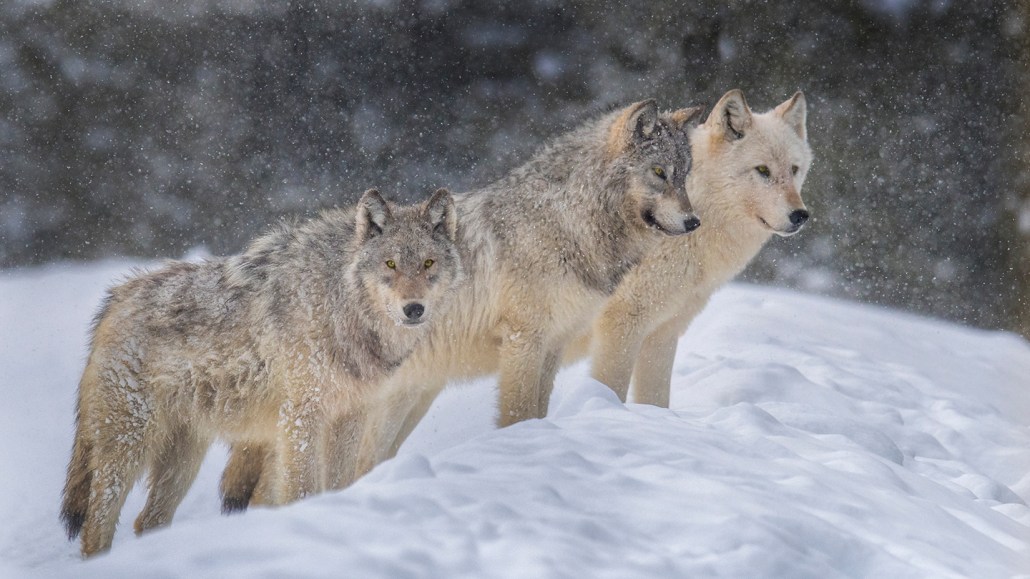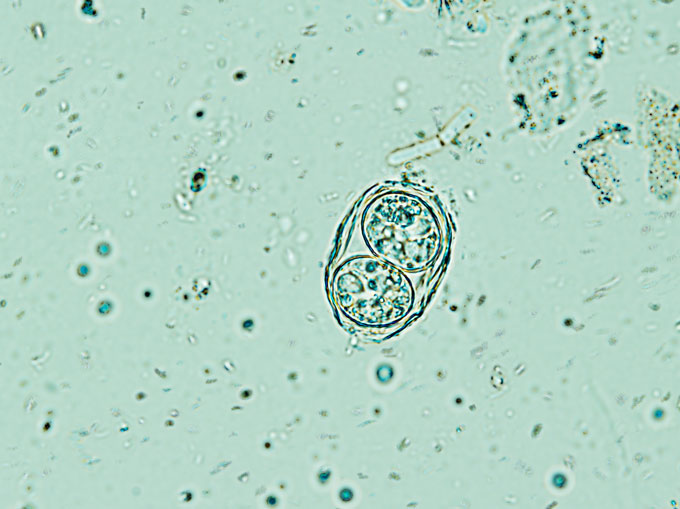This parasite makes wolves more likely to become leaders
Toxoplasma gondii infections have a dramatic impact on the social behavior of gray wolves

Gray wolves are more likely to take more risks when infected with the parasite Toxoplasma gondii.
Russell Burden/Photodisc/Getty
Share this:
- Share via email (Opens in new window) Email
- Click to share on Facebook (Opens in new window) Facebook
- Click to share on X (Opens in new window) X
- Click to share on Pinterest (Opens in new window) Pinterest
- Click to share on Reddit (Opens in new window) Reddit
- Share to Google Classroom (Opens in new window) Google Classroom
- Click to print (Opens in new window) Print
By Jake Buehler
A parasite might be driving some wolves to lead or go solo.
Wolves in Yellowstone National Park infected with a certain microbe make more daring decisions than uninfected wolves. The infected wolves’ enhanced risk-taking means they are more likely to leave their pack or become its leader.
“Those are two decisions that can really benefit wolves — or could cause wolves to die,” notes Connor Meyer. So the new findings reveal a parasite’s potent ability to influence a wolf’s fate. Meyer is a biologist at the University of Montana in Missoula. He and his colleagues shared their discovery November 24 in Communications Biology.
Wolf infections
The puppet-master parasite is called Toxoplasma gondii. This single-celled creature has a track record of changing animal behaviors. Infected mice, for example, can lose their fear of cats. This makes the mice more likely to get eaten. And that’s good for T. gondii, which breeds inside felines’ small intestines.
Recent research has shown that in Yellowstone National Park, T. gondii infects many wolves. Meyer’s team wondered if the park’s gray wolves (Canis lupus) showed any parasite mind-bending of their own.
To find out, they pored over about 26 years’ worth of data covering 229 of the park’s wolves. These data included blood samples and observations of the wolves’ behaviors and movements.

Screening the wolf blood for antibodies against T. gondii parasites revealed which animals were infected. The researchers also noted which wolves left their pack or became a pack leader. A wolf pack usually includes a mom, dad and their kids.
Leaving a pack or becoming a pack leader are both high-stakes moves, Meyer says. Wolves without a pack are more likely to starve, since hunting is more difficult. And to become a pack leader, wolves may have to fight other pack members.
Infected wolves were 11 times as likely as uninfected wolves to leave their pack. And they were about 46 times as likely to become leaders. The findings fit with T. gondii’s ability to boost boldness in a variety of other animals.
The study fills a crucial gap in knowledge about Toxoplasma, says Ajai Vyas. This neurobiologist works at Nanyang Technological University in Singapore. He did not take part in the new study.
“Most of the earlier work has been done in the lab,” Vyas says. But that research can’t exactly mimic how animals experience the effects of T. gondii in their natural habitats. Such research is “almost like studying whale swimming behavior in backyard pools,” Vyas says. It “does not work very well.”
Open questions
The boldness of infected wolves may form a feedback loop, Meyer’s team says. It found that Yellowstone’s cougars (Puma concolor) carry T. gondii too. Plus, wolves’ infection rates were highest when their ranges extended into areas with a lot of cougars. Infected wolf leaders may be more likely to bring pack members into riskier situations, including approaching cougar territories. That, in turn, may increase the chance of other wolves getting infected.
The feedback-loop idea is “very fascinating,” says Greg Milne. But more research is needed to confirm it. For instance, researchers could see if infected wolves are more likely to migrate to areas with more cougars. If so, Milne says, that would offer support for the feedback-loop idea. Milne studies the spread of diseases at the Royal Veterinary College in London. He, too, did not take part in the study.
Meyer’s team is interested in looking at the long-term effects of a T. gondii infection, too. These scientists are curious about whether infected wolves make better leaders or lone wolves than their uninfected peers.
Another unknown, says coauthor Kira Cassidy, is whether infection affects a wolf’s survival or if it is a good parent. She’s a wildlife biologist at the Yellowstone Wolf Project in Bozeman, Mont. Infection may help wolves in some ways, she notes, but harm them in others.






